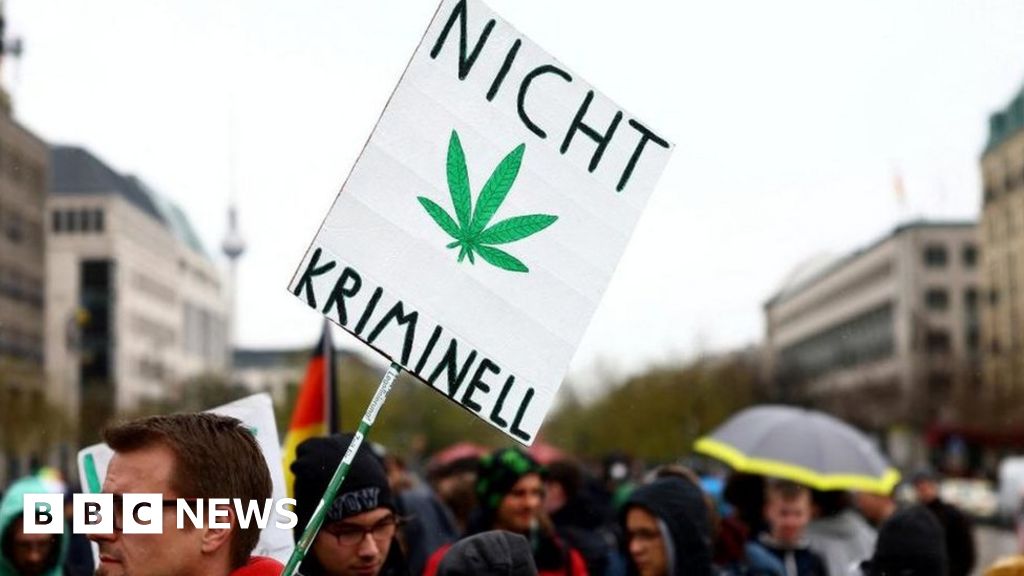Germany is often celebrated for its orderly Reinheitsgebot (beer purity law) and efficient systems. However, beneath this surface of regulation lies a thriving and complex illegal drug market, shaped by globalization, digital innovation, and shifting social attitudes. From cannabis in clubs to cocaine in financial districts, the landscape of illicit substances is as diverse as the country itself.https://medschemicalsuppliers.com/en/
Understanding this market is not about glorification, but about recognizing a public health reality. This post will explore the most common illegal substances, the trends shaping their availability, and the critical harm reduction information needed to navigate this dangerous terrain.https://medschemicalsuppliers.com/en/product-category/opioide-kaufen/
Disclaimer: This post is for informational and harm reduction purposes only. It does not constitute legal or medical advice. The possession, sale, and consumption of most drugs mentioned here are illegal in Germany and carry significant legal penalties.
The Staple Substances: What’s Available and Where
The German drug market mirrors broader European trends, with a mix of established and newer substances.
- Cannabis: The most widely consumed illicit drug. While Germany has recently moved toward partial legalization for personal use, the commercial sale remains illegal, sustaining a black market. Quality varies wildly, with products sometimes contaminated with other synthetic cannabinoids or glass beads to increase weight.
- Stimulants: Cocaine and Amphetamines:
- Cocaine is prevalent in urban nightlife and affluent social circles. Its high price reflects its status as a „luxury“ drug, but it is often heavily cut with levamisole (a veterinary dewormer), local anesthetics, or other stimulants.
- Amphetamine (known as Speed or Pep) is cheaper and more common in the party scene, particularly in techno clubs and festivals. Its production in Dutch and German labs means it is widely available, but its purity and composition are highly unpredictable.
- MDMA (Ecstasy/Molly): Synonymous with Germany’s world-renowned techno and club culture. Typically sold as pressed pills (with various logos) or crystals/powder (Molly). Dosage can be extremely inconsistent, with some pills containing dangerously high amounts of MDMA or being adulterated with other substances like PMA or cathinones.
- New Psychoactive Substances (NPS): The market for so-called „Legal Highs“ or „Research Chemicals“ is significant. These synthetic drugs (e.g., synthetic cannabinoids like „Spice,“ synthetic cathinones like „3-MMC,“ or synthetic opioids) are designed to mimic the effects of illegal drugs. They are particularly dangerous because their potency is extreme, their effects are poorly understood, and they are often sold online or in head shops before being banned.
- Heroin and Opioids: While less visible than in the 1980s/90s, heroin use persists, particularly in major cities like Frankfurt, Berlin, and Hamburg. A growing concern is the arrival of fentanyl and other potent synthetic opioids, which have caused devastating overdose crises in North America and are a emerging threat in Europe.https://medschemicalsuppliers.com/en/product-category/research-chemicals/
The Digital Marketplace: The Rise of Cryptomarkets
A major driver of the modern drug trade is the internet. Cryptomarkets on the dark web (often accessed via the Tor browser) function like illicit versions of Amazon. Buyers can order drugs with a degree of anonymity, and products are then shipped via postal services.
This has changed the game:
- Access: Drugs are no longer confined to knowing a local dealer.
- Perception of Safety: The online rating systems can create a false sense of security about product quality.
- Risk: While avoiding street deals, buyers face the risk of package interception by customs (Zoll) and police.
The Legal Landscape: Consequences of Participation
Germany takes a dual-track approach: while emphasizing public health and harm reduction (e.g., drug consumption rooms, heroin-assisted treatment), it still enforces criminal penalties.
- Possession: For small quantities (geringe Menge) deemed for personal use, prosecutors may drop charges, particularly for cannabis. However, this is not a guarantee and varies by federal state. A record can still impact visa applications and certain job prospects.
- Sale and Trafficking: Carries severe penalties, including multi-year prison sentences.
- Driving: A near-zero-tolerance policy exists for driving under the influence of drugs. Detection can lead to heavy fines, license suspension, and mandatory medical-psychological assessment (MPU), which is a costly and lengthy process.
Harm Reduction: Essential Knowledge for Safety
The only way to avoid risk is to not use. However, for those who make different choices, these principles are vital.
- Get Your Drugs Tested: Drug checking services (Drugchecking) are available in some German cities like Berlin, Hamburg, and Frankfurt. You can anonymously submit a small sample of a substance to have it analyzed for content and potency. This is the single most effective way to avoid adulterated or unexpectedly potent drugs.
- Start Low, Go Slow: Especially with any new batch or substance. Your body’s reaction can be unpredictable.
- Never Use Alone: Have a trusted friend with you who can seek help if something goes wrong.
- Be Naloxone-Aware: Naloxone is a life-saving medication that can reverse an opioid overdose. In Germany, it is available in pharmacies without a prescription. If you or someone you know uses opioids, learn how to use it and carry it.
- Know the Signs of Overdose: Unresponsiveness, slow or absent breathing, snoring/gurgling sounds, pale or clammy skin, blue lips/fingernails. Call 112 immediately and administer naloxone if available.
- Stay Hydrated (But Not Too Much): Especially for stimulants and MDMA. Sip water or electrolyte drinks; do not overconsume.
The Bottom Line
Germany’s illegal drug market is a sophisticated and dangerous ecosystem. It is fueled by both demand and innovation, presenting ever-changing risks to users.
The most profound shift in thinking is from a purely criminal issue to a public health one. Being informed—about the substances, the laws, and the practical steps for safety—is not an endorsement of drug use, but a necessary strategy for mitigating harm in a complex reality.
If you or someone you know is struggling with substance use, help is available confidentially and without judgment. Organizations like Suchthilfe (addiction support services) in every major city offer counseling, therapy, and support.
Your health and safety are the priority. Make informed choices.New chatDeepThinkSearch
AI-generated, for reference only

